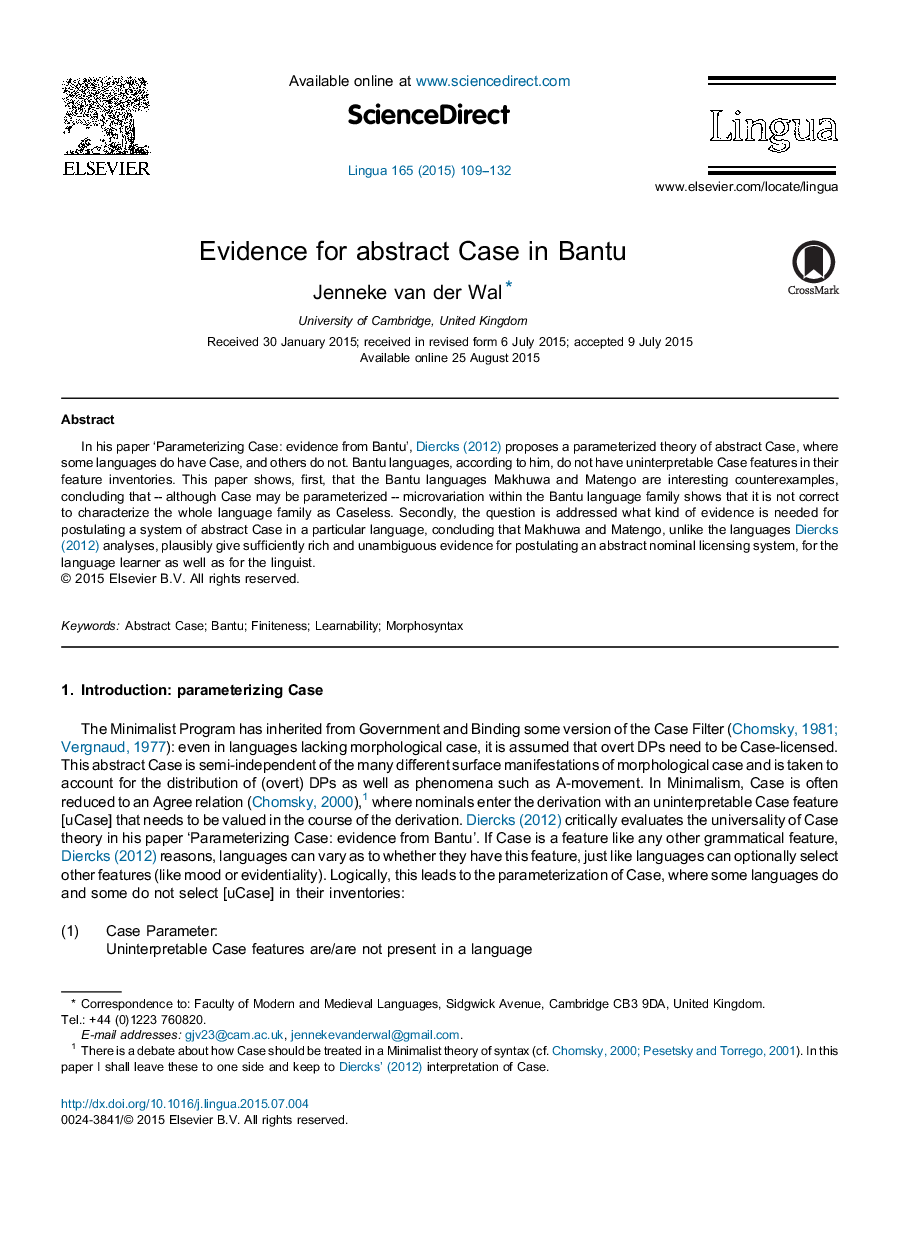| Article ID | Journal | Published Year | Pages | File Type |
|---|---|---|---|---|
| 935295 | Lingua | 2015 | 24 Pages |
•Bantu languages show variation in the effects of abstract Case.•Five diagnostics are applied to detect abstract Case.•Makhuwa and Matengo pattern differently from Diercks’ (2012) Caseless languages.•Data from Makhuwa and Matengo give sufficient evidence for postulating abstract Case.
In his paper ‘Parameterizing Case: evidence from Bantu’, Diercks (2012) proposes a parameterized theory of abstract Case, where some languages do have Case, and others do not. Bantu languages, according to him, do not have uninterpretable Case features in their feature inventories. This paper shows, first, that the Bantu languages Makhuwa and Matengo are interesting counterexamples, concluding that – although Case may be parameterized – microvariation within the Bantu language family shows that it is not correct to characterize the whole language family as Caseless. Secondly, the question is addressed what kind of evidence is needed for postulating a system of abstract Case in a particular language, concluding that Makhuwa and Matengo, unlike the languages Diercks (2012) analyses, plausibly give sufficiently rich and unambiguous evidence for postulating an abstract nominal licensing system, for the language learner as well as for the linguist.
